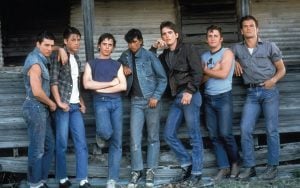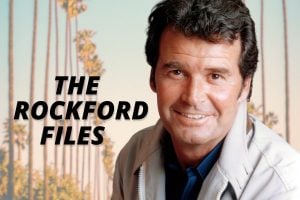Dreaded cry: ‘Fire in spacecraft!’
Cape Kennedy, Florida — The searing fire that snuffed out the lives of three Apollo astronauts in split seconds was the first ever to break out in a US space ship, the head of an investigating team said today.
For the first time, a blockhouse crew heard the dreaded cry, “Fire in the spacecraft!” in the moment of death for Astronauts Virgil I (Gus) Grissom, Edward H White II and Roger B Chaffee.
“A flash fire originated inside the capsule and surrounded it for a matter of split seconds,” said Maj Gen Samuel Phillips, Apollo Program Director.

The holocaust on Pad 34, which set the US moon program back perhaps for months, claimed these victims:
- Virgil I Grissom, 40, hero of the Mercury and Gemini programs that blazed the first American trails in space.
- Edward H White II, 36, first US astronaut to leave his ship and become a human satellite.
- Roger B Chaffee, 31, a fledgling spaceman looking forward to his first mission.
Some day, every spaceman knew in his heart, it was bound to happen. It was too much to hope that the perilous route to the moon could be traveled without loss of life.
But when it came, they thought, it would be in the far reaches of space, not this way.
Going through a full-scale simulation of the launch that was to carry them aloft Feb 21 for a two-week ride, Grissom, White and Chaffee were trapped in the spacecraft when it was swept by the flash fire.

The emergency escape system was closed to them, because the entire craft was locked in a protective gantry.
Fire hot enough to ignite metal seared and blackened the spaceship. Bodies of the astronauts were badly charred.
“Three valiant young men have given their lives in the nation’s service,” said a shocked and saddened President Johnson. “We mourn this great loss, and our hearts go out to their families.”
Twenty-seven launch pad crewmen were overcome by smoke in futile efforts to get through to the astronauts. Two were hospitalized.

Not until 1:55 am, more than seven hours after the fire broke out, were the bodies removed from the smouldering space ship. They were taken to a nearby dispensary.
“They didn’t have a chance,” said a NASA spokesman. “It was instantaneous.”
Until this sudden disaster, so far unexplained, Americans had come through many daring space rides without a mishap. Three other astronauts had died, but in airplane crashes.
A board of investigation was to be named today to seek the cause of the mishap.

“We are in a risky business”
Johnson and officials of the National Aeronautics and Space Administration said the moon program would push forward with renewed dedication and purpose — as the three men would have wanted it.
“If we die,” Grissom once said, “we want people to accept it. We are in a risky business, and we hope that if anything happens to us it will not delay the program. The conquest of space is worth the risk of life.”
MORE: To the moon! 20 newspaper headlines from the Apollo 11 launch on July 16, 1969
The astronauts were in their space suits, in a pure oxygen environment, when the blaze flared up. During the countdown, minor troubles had been reported with the communications and environmental control systems, but it was not known whether the fire stemmed from this.
Gordon Harris, chief of public affairs for NASA’s Kennedy Space Center said the men probably died without any knowledge that there was serious trouble aboard.
The spacecraft and rocket were not fueled, and explosive devices aboard the spacecraft had been inactivated.
Navy Captain Walter M Schirra Jr, now steps into Grissom’s role as command pilot for the first Apollo mission. Other members of the backup crew will be Air Force Majors Walter Cunningham and Donn F Eisele, both space rookies.

Grissom, an Air Force lieutenant colonel, was one of the original seven astronauts and the first to ride a blazing rocket twice into the skies. After his first flight, a sub-orbital hop in a Mercury spacecraft, Grissom wound up swimming for his life when the ship sank in the Atlantic.
With Navy Cmdr John W Young, he flew the first three-orbit mission in Gemini 3 and became the first man to maneuver a spacecraft in flight.

White, also an Air Force lieutenant colonel, was the first American to walk in space, orbiting outside the Gemini 4 spacecraft for 21 minutes.
Chaffee joined the space program in 1963 with the third group of astronauts after logging more than 1,800 hours in jet aircraft. He was a Navy lieutenant commander.

MORE: Apollo 11: The speech Nixon would have given ‘in event of moon disaster’ (1969)
President Johnson sent personal messages to families of the lost spacemen.
The President and five astronauts — L Gordon Cooper Jr, M Scott Carpenter, Neil A Armstrong, Richard F Gordon and James A Lovell — were at the White House in the hour of tragedy. They were celebrating the signing of the treaty on peaceful uses of outer space.
Despite the terrible loss, Sen John Stennis, D-Miss, said the United States must press on with the conquest of space.
“I don’t think this indicates any dereliction on our part of those conducting our space program,” he said. “Perhaps it is only the law of averages catching up with us.”
Each of the three Apollo fliers was married and each had two children. A NASA spokesman said funeral arrangements would be announced, possibly late today, after consultations with families.

MORE: One small step: Everything that happened the day man first walked on the moon in 1969



















